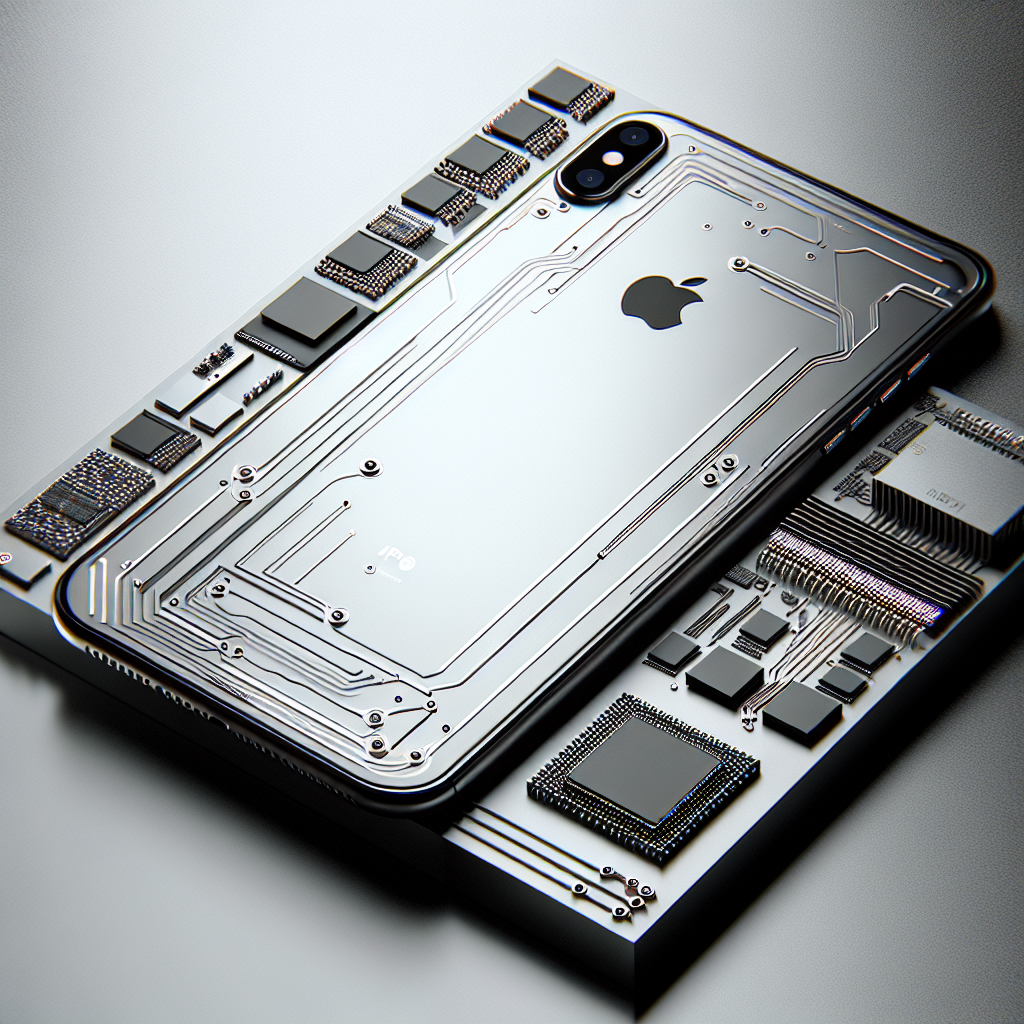iPhone 18: Enhanced Speed with Next-Gen 2nm Processors
Apple is preparing to transform its smartphone portfolio with the eagerly awaited iPhone 18. Industry analysts report that the iPhone 18 will utilize a state-of-the-art 2nm chip from Taiwan Semiconductor Manufacturing Company (TSMC), which promises superior speed and heightened energy efficiency. This pivotal enhancement could signify a groundbreaking advancement in mobile technology, positioning the iPhone 18 among the most powerful smartphones ever launched.
Transitioning to 2nm Chips: Implications for Performance
A Major Leap in Processing Capability
At present, the iPhone 16 utilizes a 3nm A18 chip, while the Pro variants boast the more sophisticated A18 Pro processor. The anticipated iPhone 17, slated for a fall 2025 release, is speculated to feature an upgraded 3nm chip known as the A19. However, the significant shift comes with the iPhone 18 as Apple embraces the future with 2nm technology.
Ming-Chi Kuo, an industry expert, initially forecasted that only the premium iPhone 18 Pro models would incorporate the 2nm chip. Recent updates, however, indicate that all models in the iPhone 18 series will enjoy this robust enhancement. TSMC’s impressive production yields—surpassing the 60-70% threshold—suggest that Apple will have ample supply for a comprehensive switch.
Enhanced Performance and Energy Efficiency
The transition to a 2nm architecture is projected to yield a 10-15% performance improvement over the iPhone 17 while also lowering energy consumption. This advancement means users can benefit from swifter processing speeds, smoother multitasking, and longer battery life without sacrificing device efficiency.
Anticipations for the iPhone 17
A New Streamlined Model
While Apple’s chip producers concentrate on the iPhone 18, anticipation is rising for the iPhone 17, which is scheduled to launch in 2025. Speculations suggest that Apple may retire the iPhone 17 Plus in favor of a sleek model, potentially called the iPhone 17 Slim. This refined design aligns with Apple’s continual efforts to enhance its smartphone aesthetics while preserving top-notch performance.
Upgraded RAM for Enhanced Apple Intelligence
Apple isn’t solely concentrating on design enhancements. Reports indicate that the company is aiming to integrate faster RAM into the iPhone 17, which could significantly boost the responsiveness of Apple Intelligence, its AI-powered features. This upgrade would facilitate a smoother user experience, quicker app launches, and better computational performance.
A Nearly Bezel-Free Screen
One of the most thrilling rumored upgrades for the iPhone 17 is a nearly bezel-free display. Apple has incrementally minimized bezel sizes in previous iterations, and the iPhone 17 might finally achieve a genuine edge-to-edge screen, maximizing display space without enlarging the phone’s overall dimensions.
A Possible Shift in Camera Suppliers
Traditionally, Apple has relied on Sony for its camera sensors, but reports indicate that Samsung is vigorously vying to become a primary supplier. If this transition occurs, it could unveil new camera technologies and enhancements, potentially boosting low-light capabilities, image stabilization, and overall image quality.
The Future of the iPhone: The 2nm A20 Chip’s Advantages
Superior Longevity of Battery
One of the significant benefits of the 2nm A20 processor in the iPhone 18 is its capacity to minimize energy consumption. A reduced chip size means less power is needed for processing tasks, resulting in prolonged battery life. This enhancement could greatly benefit users who depend on their smartphones throughout the day without frequent recharging.
A Swifter and More Efficient iOS Experience
With the added processing power of the 2nm chip, iOS is anticipated to run more seamlessly than ever before. Users can expect faster app launches, enhanced gaming performance, and a more intuitive interface. This upgrade will likely also boost the capabilities of Apple’s AI features, making the iPhone 18 more intelligent and responsive.
Summary
The iPhone 18 is poised to be a revolutionary launch, with Apple achieving significant advancements in processing capability and efficiency. The switch to TSMC’s 2nm chip will facilitate faster performance, extended battery life, and a more fluid user experience. Meanwhile, the iPhone 17 is set to unveil captivating design innovations, including a bezel-less display and a slimmer form. As Apple continues to push the limits of smartphone technology, both the iPhone 17 and iPhone 18 are destined to redefine mobile computing possibilities.
Frequently Asked Questions
1. What is the primary enhancement in the iPhone 18?
The iPhone 18 will feature a 2nm processor, providing a 10-15% performance increase over the iPhone 17 while enhancing energy efficiency and battery longevity.
2. Will every iPhone 18 model include the 2nm chip?
Initially, analysts believed that only the Pro models would feature the 2nm chip, but recent updates indicate that the complete iPhone 18 range will benefit from this advancement.
3. What modifications are anticipated in the iPhone 17?
The iPhone 17 may introduce a slimmer model, a nearly bezel-free display, faster RAM for improved performance, and potentially new camera sensor suppliers.
4. How will the 2nm chip enhance battery life?
The smaller chip size of the 2nm processor minimizes power consumption, allowing devices to operate longer on a single charge while maintaining high performance.
5. When are the iPhone 17 and iPhone 18 expected to be released?
The iPhone 17 is anticipated to launch in fall 2025, while the iPhone 18 is expected to debut in fall 2026.
6. Will the iPhone 18 feature improved AI capabilities?
Yes, the upgraded processing power and enhanced RAM will strengthen Apple Intelligence, making AI-driven functionalities more responsive and effective.
7. Could there be a significant design update in the iPhone 18?
While specifics are limited, Apple’s emphasis on minimizing bezels and enhancing battery efficiency may lead to a sleeker, more polished design.